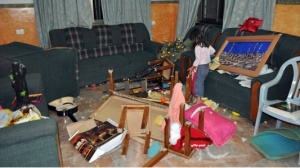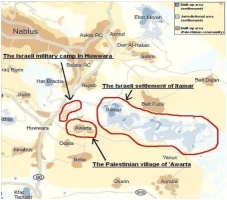Continuous Collective Punishment in ‘Awarta
Latest Topics
01، Apr 2025
Erasure in Motion: Israel’s Forcible Displacement of West Bank Bedouin Communities
30، Mar 2025
SPECIAL FOCUS: Consolidating Annexation of the West Bank: Israel’s Demolitions in Area B
28، Mar 2025
Over 200 South African and Palestinian Human Rights Organisations Urge South Africa to Return to the International Court of Justice for Provisional Measures
27، Mar 2025
Re: PHROC Warns that UN Mandates are Failing to Protect Palestinians as Israel Kills Over 50,000 Palestinians, Meek Condemnations are Complicity
25، Mar 2025
Joint press release: Coalition Appeals Dutch Court Ruling for Failure to Uphold Obligations Under International Law
24، Mar 2025
World Water Day: Deprivation of Water and destruction of water installations are tools of Israel’s Genocide against the Palestinian people
Related Subjects
12، Oct 2019
Over 280 ESCR-Net Members Call for Stronger Treaty to Regulate Corporate Activities
09، Oct 2019
Al-Haq’s Engagement with the UN Committee on Economic, Social and Cultural Rights for Israel’s Fourth Periodic Review
08، Oct 2019
Al-Haq Welcomes Launch of World Health Organization Report on the Right to Health in the Occupied Palestinian Territory



 Since March 2011, the Israeli army has been conducting indiscriminate and arbitrary attacks against the residents of the Palestinian village of ‘Awarta (Nablus governorate) in retribution for the appalling murder of five members of an Israeli family from the nearby ‘Itamar’ settlement on 11 March 2011. Two Palestinian residents of ‘Awarta were subsequently convicted of the crime.
Since March 2011, the Israeli army has been conducting indiscriminate and arbitrary attacks against the residents of the Palestinian village of ‘Awarta (Nablus governorate) in retribution for the appalling murder of five members of an Israeli family from the nearby ‘Itamar’ settlement on 11 March 2011. Two Palestinian residents of ‘Awarta were subsequently convicted of the crime. Last week, Al-Haq documented the case of Mazen Niyyaz 'Awwad (45 years old), whose home was raided and family members intimidated and threatened by the Israeli military. Mazen is the father of Hakim (19 years old), one of the two Palestinians convicted of the murders. Hakim was arrested on 5 April 2011 and sentenced to five life sentences.
Last week, Al-Haq documented the case of Mazen Niyyaz 'Awwad (45 years old), whose home was raided and family members intimidated and threatened by the Israeli military. Mazen is the father of Hakim (19 years old), one of the two Palestinians convicted of the murders. Hakim was arrested on 5 April 2011 and sentenced to five life sentences.